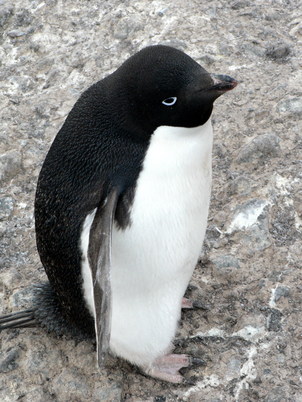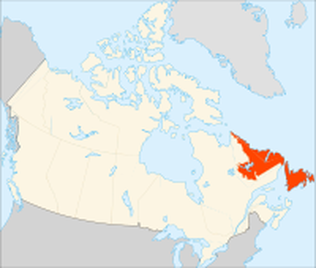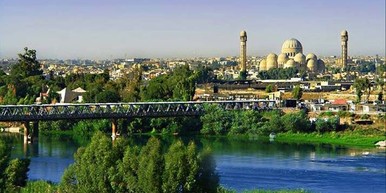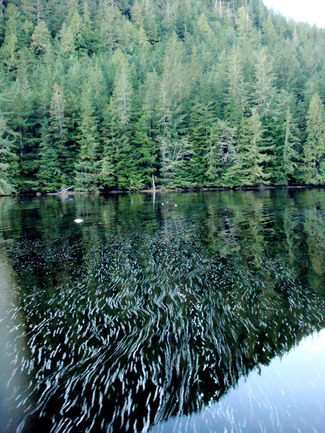 Mrs Adelie says thanks for leaving some food for me Mrs Adelie says thanks for leaving some food for me The establishment of a 600 000 square mile conservation area in the Southern Ocean goes a long way to preserving some of the wild life living there. Approximately 70% of the area is now designated “no-take” which means that all fishing is prohibited. In the other 30% some fishing and research fishery is allowed. No mineral extraction will be allowed. The agreement has 24 countries signed on as well as the EU. When the agreement was signed on October 28th, it was after six years of negotiations. The Ross Sea is one of the last great natural areas and is increasingly being eyed by the fishing fleets of the world. China is one of the signatories, coming on board last year, and Russia had now agreed as well. Today's agreement is a turning point for the protection of Antarctica and the Southern Ocean," Chris Johnson, WWF Australia Ocean Science Manager, said. ABC News Some observers have voiced their disappointment that there is an expiry date on the agreement. The agreement will expire in 2052. As the fishing pressure on the world’s oceans increases along with the increasing human population, warnings that the oceans may be fished out this century have been sounded since at least 2006. Currently an estimated 85% of oceans are considered overexploited. Better technology and larger, often government subsidized fishing fleets have been able to scoop ever increasing amounts of fish, sharks and mammals from the waters. The current world appetite for shark fin soup has let to the slaughter of millions of sharks, leaving a huge rent in the food web of the oceans. While it may seem to many that the oceans that cover much of the Earth can’t be affected by humans, we can look to the famous Grand Banks off the east coast of Canada. They have been exploited since the Middle Ages and the bounty seemed endless. Then a rapid decline in the fish was observed. By 1977 the decline was obvious to all and Canada shut the cod fishery down completely in 1992. In Europe, the North Sea has fed countless generations of people but it too, has been so stressed by overfishing that it can no longer produce in previous quantities. Russia set aside a large area last year in the Arctic. The US has established a marine reserve around much of Hawaii and some S. Pacific nations have also established large no fishing zones.
0 Comments
 Labrador and Newfoundland in red Labrador and Newfoundland in red Opinion The crisis at Muskrat Falls, Newfoundland/Labrador has been settled peacefully. Last week a confrontation between the Innu First Nation and the provincial government came to a head when a report regarding the new hydro-electric dam was released. The report pointed out the danger of allowing vegetation to be inundated when the nearly completed project filled the reservoir behind the dam. The soil in the area is higher in mercury than average. The form that is taken up by the plants is not readily absorbed and is relatively non-toxic. However, when plant material is submerged and starts to rot, the mercury is converted to a much more toxic form of the element. This more toxic form of mercury, methyl-mercury, can dissolve in water and can be absorbed by living organisms. Animals such as fish can absorb it and store it in their bodies. They may suffer subtle damage from it. The toxic substance passes up the food chain, accumulating in ever-greater concentrations. The people of Innu First Nation were concerned that the methyl-mercury would bio-accumulate in the fish, seals and birds upon which they depend for food. When their concerns seemed to gain no traction, they peacefully occupied the dam site and demanded that the filling of the reservoir be halted. What those in charge of the project did was in sharp contrast to the situation at Standing Rock in N. Dakota. The 700 workers on the site were quickly evacuated by plane. Premier Dwight Ball met with the Innu Nation and their representatives. Concerns were expressed and acknowledged. Agreements were reached and a way forward was mapped out. Following is a quote from the NL premier: "Today's meeting was about one thing: the health of Labradorians," Ball said at about 2 a.m., after the meeting's conclusion. He said the parties reached "common ground on a lot of concerns, a lot of different issues today." CBC Canada has a bleak record of dealing with its First Nations. Improvements in the relationship are being made, but very slowly. The quick, peaceful settlement of this issue illustrates how respectful negotiations can benefit all. Further reading: Democracy Now CBC News  Pres. Duerte Pres. Duerte Controversial Philippine president, Rodrigo Duerte, has declared that he is not a US lapdog before boarding a plane to take him to a three day visit to Japan. Duerte was quoted in the Philippine newspaper PhilStar. Part of the speech is printed below. I apologize in advance if any of the non-English words offend. "You count me out. I'm not one of you. I am not also a tuta of any country, mind you. Ang puwede lang magtuta sa akin ang Pilipino, walang iba," Duterte said in a press briefing before leaving for Japan. He went on to threaten the mutual defense treaty with the US. The Enchanced Defense Cooperations Agreement(EDCH) which has been in effect since 1951. It provides for the mutual defense of either country should it be attacked by a third party. Duerte was elected president on a wave of concern about growing numbers of drug dealing, paid assassins and pockets of insurrection. He campaigned on a platform of hard justice. Since his election in May 2016, Duerte has been criticized by the UN and human rights groups for allowing and encouraging extrajudicial killings of drug dealers. It has been alleged that street children have also been targeted. He has also justified the killing of journalists if “you are a son of a bitch”. In response to criticism Duerte has declared that he may remove the Philippines from the UN. He recently made a state visit to China and delivered a fiery speech in which he castigated the US involvement in the Philippines and declared his affection for the PRC as well as expressing interest in exploring close defensive ties with Russia. To that end, he met with Russian PM in September. This comes as the South China Sea issue continues to ramp up tensions. China has been building and fortifying islands in disputed territory. Currently, at least seven countries have overlapping claims to parts of the sea. It is an important trade route with at least 30% of world trade passing through some part of it. In addition, it has rich fisheries and proven petroleum resources. Further reading: PhilStar  Mosul before the 2014 invasion Mosul before the 2014 invasion The battle to free the Iraqi city of Mosul began Monday October 17. The major Iraqi city has been under the control of the ISIL fighters since a lightning take over in 2014. When the ISIL(Daesh) invaded, there were about a million people living there. Iraqi While the military action to retake the city is made up of Iraqi soldiers and the Kurdish Peshmerga, they have received backing and support from several countries. Shortly after the invasion started, it was announced that 200 square kilometres surrounding the city had been liberated. The Iraqi president, Masoud Barzani, was confident enough of the progress that he held a press conference near the city. Part of his speech is printed below. "Today is a turning point in the war against terrorism. This is the first time that Peshmerga forces and Iraqi army have cooperated and fought in the same area," Barzani said during a press conference near Mosul. Al Jazeera The move to retake the city is not a walkover. Stiff resistance and the use of suicide bombers have slowed the coalition along the main highway from Erbil to Mosul. American forces have been providing air cover as well as having personnel close to, but not leading the fighting. There are about 30 000 men in the coalition and about 5000 Americans currently in Iraq. The ISIL fighters have booby trapped roads and abandoned buildings in the outlying villages. It has been reported that they are stashing IEDs in people’s homes. Some people have managed to increase their security while this effort is ongoing. One man reported that his family has removed anything that is flammable, reinforced the walls with sandbags and cached as much food and water as they could have afford. If the second largest city in Iraq can be liberated from the terrorist group, it will strike a major blow to the organization’s claim of a caliphate. But the liberation and installment of government in the city will not be easy as there are deep religious divides among the residents. The major divide between the Shia and Sunni groups is a serious one. The Kurds also have claims on Mosul. Humanitarian aid agencies have begun to set up camps outside the fighting zone to help civilians who escape the city but have nowhere to go. Further Reading: Al Jazeera TheGuardian  Keep tankers off the BC coast Keep tankers off the BC coast Opinion A tug hauling a fuel barge went aground on the rocky Pacific coast near Bella Bella on Thursday night. The Nathan E. Stewart ran up on a reef at 1 am and started leaking diesel fuel. At this time, Saturday, it is unknown how much diesel has leaked into the water. When it left Alaska enroute to Vancouver, the tug was carrying 50 000 gallons of fuel. The vessel is double-hulled. This newer design is supposed to save the environment by confining the petroleum in the event of beaching. This area is near the Great Bear Rainforest and home to many rare marine and shore animals. The area is environmentally pristine. It is part of a voluntary tanker exclusion zone, but small tankers and tanker barges can use the passage ways. The tug also has a waiver to travel in Canadian waters on its way to the US without carrying a pilot. The local First Nation has profitable Manila clam beds in the area. They also depend on the fishery for food. They point out that further up the coast where the BC Government ferry sunk ten years ago continues to taint the fishery there. In the cold northern waters, petroleum products break down very slowly. The Exxon Valdes sunk twenty-seven years ago and the pollution continues to taint the fishery. The Western Canada Marine Response Corp. was on the scene within 24 hours and laid floating booms to try to contain the diesel fuel. Divers were dispatched to try to patch the holes in the tug. A spokesman for the corporation was quoted as opining that weather would likely not affect the cleanup. The west coast of BC is currently experiencing the third in a series of Pacific storms. Each one has brought more rain and increasingly intensive winds. This time the inside passage north of Vancouver Island has been spared. But we can count on that to always happen. Environmentalists in BC may sometimes seem unreasonable in opposing pipelines that bring oil to the coast to fill tankers bound for foreign countries. The KinderMorgan pipeline has just been granted permission to increase capacity in spite of vociferous opposition. The Northern Gateway pipeline proposal is currently on hold. Yet incidents like the grounding of the Texas owned pusher tug on our coast serves to remind everyone how fragile and dangerous the coastline is. To belabour the point, this accident appears to be the result of human error, the sinking of the Queen of the North was human error and the Exxon Valdes was as well. Below is a copy of a FB entry from a Heiltsuk First Nation resident who was posting first hand about this: http://news.nationalpost.com/news/canada/tug-boat-runs-aground-and-sinks-off-b-c-coast-leaking-diesel-near-b-c-s-great-bear-rainforest Further Reading: The Vancouver Sun National Post |
Barbara McPherson
Blogger, gardener, farmer. Working toward food security and a 30 foot
diet. Addicted to reading. Love this planet, especially my little corner
on Vancouver Island, Canada Archives
October 2016
Categories
All
|

